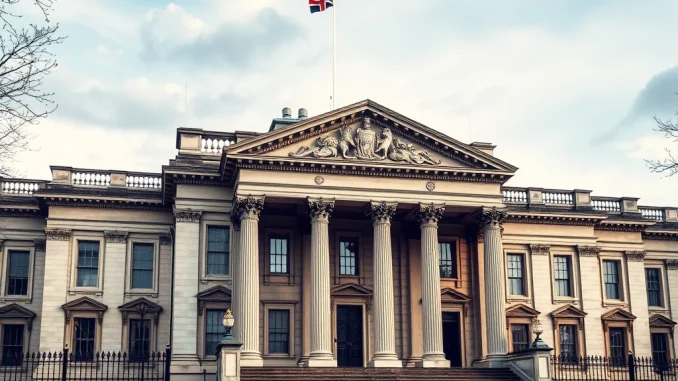
Interest in how governments approach digital assets continues to grow. A key development for those watching the UK market came recently. The UK Treasury has made a clear stance on a specific area: **UK crypto reserves**. This decision provides insight into the nation’s broader strategy for digital assets.
UK Treasury Confirms Stance on National Crypto Reserves
Speaking at the Financial Times Digital Asset Summit in London, UK Economic Secretary to the Treasury, Emma Reynolds, addressed the question of whether the UK government would follow the path of some other nations, like the United States, in accumulating national cryptocurrency reserves. Her answer was definitive.
According to reports from the event, Ms. Reynolds stated plainly that the government holds no intentions of establishing such reserves. This means the UK will not be stockpiling Bitcoin or other digital currencies in the way the U.S. government has, often through asset seizures related to criminal activities.
Why the divergence in strategy?
Ms. Reynolds explained, “We don’t think that’s appropriate for our market.” While acknowledging the U.S. approach is understandable within its own context, she emphasized it does not align with the direction the UK government is taking regarding digital assets.
Exploring DLT While Rejecting National Crypto Reserves
The UK’s cautious approach to holding digital assets as reserves doesn’t mean a complete rejection of underlying technology. Ms. Reynolds highlighted that the UK is actively exploring the potential use of distributed ledger technology (DLT). This exploration focuses specifically on the possibility of using DLT for issuing sovereign debt.
This indicates a distinction in the government’s view:
- Holding volatile, speculative assets like cryptocurrencies as national reserves is not seen as suitable.
- Leveraging the foundational technology (DLT) for traditional financial instruments like government bonds is being considered for potential efficiency or innovation benefits.
The focus remains on how the technology can support existing or improved financial infrastructure, rather than treating cryptocurrencies themselves as strategic reserve assets.
What This Means for the UK Market
The clear statement from the **UK Treasury** provides certainty on this particular policy point. For cryptocurrency enthusiasts and investors in the UK, it signals that the government views digital currencies differently than traditional reserve assets like gold or foreign currencies. The priority appears to be on regulating the crypto market effectively and exploring the *technology* where it offers practical benefits to public finance, such as potentially with **UK DLT** applications for debt issuance.
The comments from **Emma Reynolds** reinforce the government’s measured approach to digital assets, prioritizing stability and appropriate use cases over speculative accumulation.
Conclusion: No UK National Crypto Reserves on the Horizon
In summary, the message from the UK Economic Secretary is unambiguous: there are no plans for **national crypto reserves** in the United Kingdom. The government is looking at the underlying technology, DLT, for specific applications like sovereign debt, but sees the accumulation of cryptocurrencies as national reserves as inappropriate for the UK’s market context. This **crucial** decision clarifies a significant aspect of the UK’s digital asset policy moving forward.



